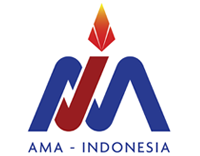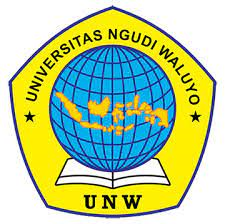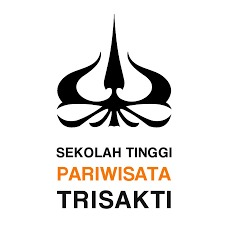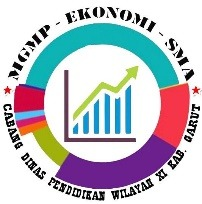- Focus and Scope
- Section Policies
- Peer Review Process
- Publication Ethics
- Publication Fees
- Review Guidelines
Focus and Scope
Jurnal Wahana Akuntansi: Sarana Informasi Ekonomi dan Akuntansi,is a publication media that contains journals of research results for researchers, lecturers, students and practitioners The scope of the article published on Jurnal Wahana Akuntansi: Sarana Informasi Ekonomi dan Akuntansi, covers the field of accounting economics in a broad sense, including
|
Section Policies
Journal Wahana Akuntansi
Peer Review Process
|
Publication Ethics
Jurnal Wahana Akuntansi: Sarana Informasi Ekonomi dan Akuntansi adopts publication ethics from The Committee on Publication Ethics (COPE) to uphold ethics in the publication of scientific papers and to anticipate all possible actions against plagiarism and fraudulent acts in publications. Applies to reviewers, writers and editors.
1. Duties Of Reviewers
1.1. Objectivity
Reviewers must evaluate the manuscript based on its content without other party interpretation. Comments on review results must respect the author. Reviewers are asked to justify their decisions and recommendations.
1.2. Confidentiality
The manuscript content of each written work is treated with the highest confidentiality. The assigned reviewer cannot discuss the manuscript with others, including the authors.
1.3. Promptness
The reviewer assigned to each journal is committed to providing a timely review to the author. If the reviewer does not submit his report on time, the manuscript will immediately be sent to another reviewer who meets the requirements.
1.4. Acknowledgement Of Sources
Reviewers should identify relevant published works that have been cited by the author. Any statements of observations or arguments that have been previously reported must be accompanied by relevant and consistent citations. Reviewers should also call the editor's attention to any similarities or overlaps between the manuscript under consideration and other published manuscripts of which they are personally aware.
1.5. Disclosure And Conflicts Of Interest
Personal information or ideas obtained through peer review must be kept confidential and not used for personal gain. Reviewers should not consider manuscripts that have a conflict of interest due to competitive, collaborative, or other relationships or connections with any of the authors, companies, or institutions the manuscript is associated with.
2. Duties Of Authors
2.1. Publication And Authorship
All persons registered as authors must qualify for authorship. Such authorship should be limited to those persons who have contributed significantly to the conception, design, implementation, data collection, data analysis or interpretation of the text. All others who have participated in certain important aspects of the research but do not qualify as authors should be recognized. Authorities are the responsibility of the respective authors; he / she must ensure that all appropriate co-authors are included in the manuscript. The authors concerned, on behalf of all co-authors, must submit a form (Copyright Transfer Form and Authorization Statement) certifying that they have all seen and approved the final version of the manuscript and agree to submit it for publication. Requests to add or remove authors or to set author names from the manuscripts received before publication, must be sent to the Managing Editor.
2.2. Manuscript Authorship
Authorities should be limited to those who have made a significant contribution to the research reported in the manuscript.
2.3. Reporting Standards
Authors must present an accurate report of the work performed as well as an objective discussion of its significance. A manuscript should contain sufficient detail and references to allow others to replicate the work where possible.
2.4. Originality And Plagiarism
The Journal of Economic Discourse publishes only original research. The Journal of Economic Discourse is committed to preventing plagiarism, including self-plagiarism by means of checking with turnitin and plagiarism checkers. Authors must ensure that they have written completely original work, and if the author has used someone else's work or words that this has been appropriately quoted or cited. Manuscripts found with such problems are automatically rejected and authors are strongly recommended.
2.5. Acknowledgement Of Sources
It is necessary to acknowledge the manuscripts of the work of others. Authors should cite publications that point to the author's most recent research.
2.6. Multiple, Redundant, Or Concurrent Publication
Authors may not simultaneously submit the same manuscript to be published in other journals. It is also hoped that the author will not publish redundant manuscripts, or manuscripts describing the same research in several places of publication, after the initial manuscript is accepted for publication. Concurrent submissions are considered unethical and therefore unacceptable.
2.7. Fundamental Errors In Published Works
When an author finds significant errors or inaccuracies in his published work, it is the author's obligation to immediately notify the journal editor or publisher and cooperate with the editor to revoke or correct the manuscript.
2.8. Disclosure And Conflicts Of Interest
All authors must disclose in their text any financial or other substantive conflict of interest that could be interpreted to affect the results or interpretation of their text.
3. Duties Of Editors
3.1. Decision
The Editor of the Economic Discourse Journal is responsible for deciding the publication of articles that have been submitted. It is important for researchers and readers to always encourage these decisions as part of the validation process. Editors can be guided by the policies of the journal's editorial board and are limited by applicable legal requirements regarding defamation, copyright infringement, and plagiarism. Editors have a duty to act if they suspect a violation.
3.2. Fair Play
Editors must evaluate the manuscript according to intellectual content regardless of the author's race, gender, sexual orientation, religion, ethnicity, nationality or political philosophy.
3.3. Confidentiality
Editors must protect the confidentiality of individual information. Editors and editorial staff may not disclose submitted manuscript author information to parties other than the author concerned, such as reviewers, potential reviewers, other editorial advisors.
3.4. Conflict Of Interest
Material not published in the submitted manuscript may not be used for the editor's own research without the written consent of the author. Special information or ideas obtained from the review process must be kept confidential and not used for personal gain. The editor must resign (must ask the co-editor, editorial association or other member of the editorial board to review and consider) the manuscript which has a conflict of interest as a result of a competitive, collaborative, or other relationship or connection with one of the authors, the company. , or (possibly) the institution associated with the text. If necessary, other appropriate action should be taken such as withdrawal of publication or expression of apology.
3.5. Involvement And Cooperation In Investigation
Editors should take reasonably responsive steps when complaints are found on ethics regarding manuscripts filed in conjunction with the publisher. These steps generally include contacting the author of the manuscript and giving consideration of each complaint or complaint that has been made, further communication to relevant agencies and research bodies and if the complaint has been enforced then publication correction, recall, expression of apology, or other notes that may be relevant. Any conduct that is reported regarding unethical behavior in publication should be given due attention even if it is discovered several years after publication.
Publication Fees
Jurnal Wahana Akuntansi: Sarana Informasi Ekonomi dan Akuntansi membebankan biaya penulis sebagai berikut : Penyerahan (submit) artikel : 0.00 IDR (gratis) Biaya Publikasi artikel : 0.00 IDR (gratis)
|
Review Guidelines
Review Process of Manuscript: Initial Review
- Read the abstract to be sure that you have the expertise to review the article. Don’t be afraid to say no to reviewing an article if there is the good reason.
- Read information provided by the journal for reviewers so you will know: a) The type of manuscript (e.g., a review article, technical note, original research) and the journal’s expectations/parameters for that type of manuscript.; b) Other journal requirements that the manuscript must meet (e.g., length, citation style).
- Know the journal’s scope and mission to make sure that the topic of the paper fits in the scope.
- Ready? Read through entire manuscript initially to see if the paper is worth publishing- only make a few notes about major problems if such exist: a) Is the question of interest sound and significant?; b) Was the design and/or method used adequately or fatally flawed? (for original research papers); c) Were the results substantial enough to consider publishable (or were only two or so variables presented or resulted so flawed as to render the paper unpublishable)?
- What is your initial impression? If the paper is: a) Acceptable with only minor comments/questions: solid, interesting, and new; sound methodology used; results were well presented; discussion well formulated with Interpretations based on sound science reasoning, etc., with only minor comments/questions, move directly to writing up review; b) Fatally flawed so you will have to reject it: move directly to writing up review; c) A mixture somewhere in the range of “revise and resubmit” to “accepted with major changes” or you’re unsure if it should be rejected yet or not: It may be a worthy paper, but there are major concerns that would need to be addressed.
Full Review Process of Manuscript
- Writing: Is the manuscript easy to follow, that is, has a logical progression and evident organisation?
- Is the manuscript concise and understandable? Any parts that should be reduced,
- Eliminated/expanded/added?
- Note if there are major problems with mechanics: grammar, punctuation, spelling. (If there are just a few places that aren’t worded well or correctly, make a note to tell the author the specific places. If there are consistent problems throughout, only select an example or two if need be- don’t try and edit the whole thing).
- Abbreviations: Used judiciously and are composed such that reader won’t have trouble remembering what an abbreviation represents.
- Follows style, format and other rules of the journal.
- Citations are provided when providing evidence-based information from outside sources.

.png)









